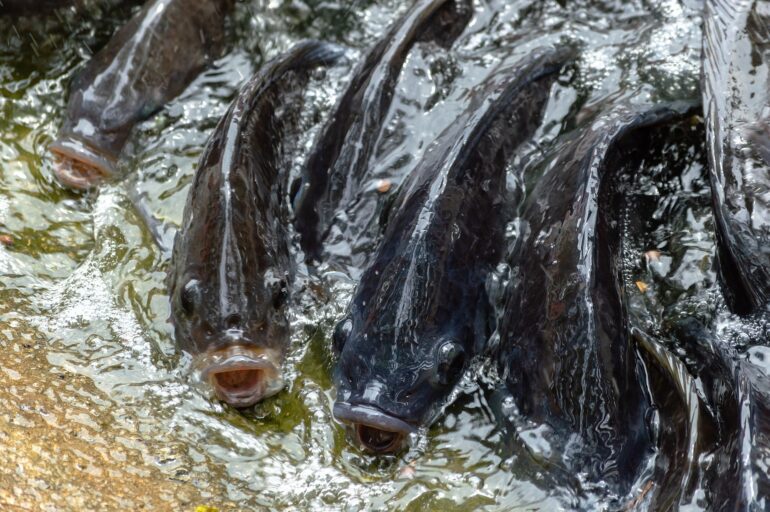TL;DR:
- French startup Bioceanor has launched a program to improve fish health in tilapia farming in collaboration with Virbac and Tropo Farms Ltd. in Ghana, Africa.
- The program utilizes data analytics and machine learning to correlate and anticipate tilapia health and growth using environmental data.
- Bioceanor’s innovative system can measure over 15 physicochemical parameters in real time, allowing farmers to monitor water quality and receive timely alerts.
- Virbac, experts in fish health, will provide support for the project.
- The program aims to mitigate risks, improve production efficiency, and promote environmental sustainability at Tropo Farms, one of Africa’s largest tilapia farms.
Main AI News:
Bioceanor, a dynamic French startup specializing in cutting-edge water quality solutions using disruptive technologies such as IoT and AI, has recently launched an innovative program aimed at revolutionizing fish health in the thriving tilapia farming industry. Collaborating with industry giants Virbac and Tropo Farms Ltd. in the vibrant region of Ghana, Africa, this groundbreaking initiative harnesses the power of data analytics and machine learning to establish crucial correlations and anticipate the well-being and growth of tilapia by leveraging environmental data.
In an era where digitalization plays an increasingly pivotal role in shaping industries worldwide, Tropo Farms Ltd. recognizes the immense value of this partnership in enhancing their farming practices. “It is a great opportunity for Tropo Farms Ltd. to embark on a journey of digital transformation alongside esteemed experts in the field. Given the ever-pressing challenges of global climate change, which demand data-driven decision-making, we are thrilled to collaborate with Bioceanor,” expressed Francisco Murillo, the visionary CEO at Tropo Farms, in a recent LinkedIn post.
Bioceanor has engineered an ingenious system capable of measuring and monitoring over 15 vital physicochemical parameters that directly impact the well-being of fish, including temperature, salinity, pH levels, oxygen levels, and turbidity. By providing farmers with comprehensive real-time data on water quality, this cutting-edge technology empowers them to take proactive measures and receive timely alerts through a dedicated web interface. Bolstering this impressive endeavor, Virbac, renowned global experts in fish health, have come on board to lend their unwavering support to the project.
By harnessing the combined expertise of Bioceanor, Virbac, and Tropo Farms, this visionary program is set to revolutionize tilapia farming in Africa. Tropo Farms, known for its position as one of the largest tilapia farms on the continent, stands to benefit greatly from this collaboration. By effectively mitigating risks, enhancing production efficiency, and championing environmental sustainability, this partnership will undoubtedly pave the way for a new era in the industry.
“Our team recognizes the unique value that Bioceanor brings to the table. Their expertise serves as an invaluable complement to Virbac and the farmers, ensuring that our solutions are tailored to the environmental conditions at hand. This, in turn, guarantees the implementation of best-in-class fish health monitoring and support,” affirmed Adrian Astier, the esteemed key account manager at Virbac, emphasizing the strategic significance of this collaboration.
With the convergence of disruptive technologies, visionary entrepreneurs, and industry leaders, the future of tilapia farming looks promising. Bioceanor’s groundbreaking program, propelled by the collective efforts of Virbac and Tropo Farms Ltd., holds the potential to reshape the landscape of fish health monitoring, production efficiency, and sustainable practices, thereby fostering a prosperous and environmentally conscious future for the industry.
Conclusion:
Bioceanor’s program marks a significant advancement in the tilapia farming industry. By leveraging disruptive technologies and data analytics, this collaboration with Virbac and Tropo Farms Ltd. has the potential to transform fish health monitoring, enhance production efficiency, and drive sustainable practices. The integration of real-time data and expertise from multiple stakeholders is set to revolutionize the market, leading to more informed decision-making and a promising future for tilapia farming.

